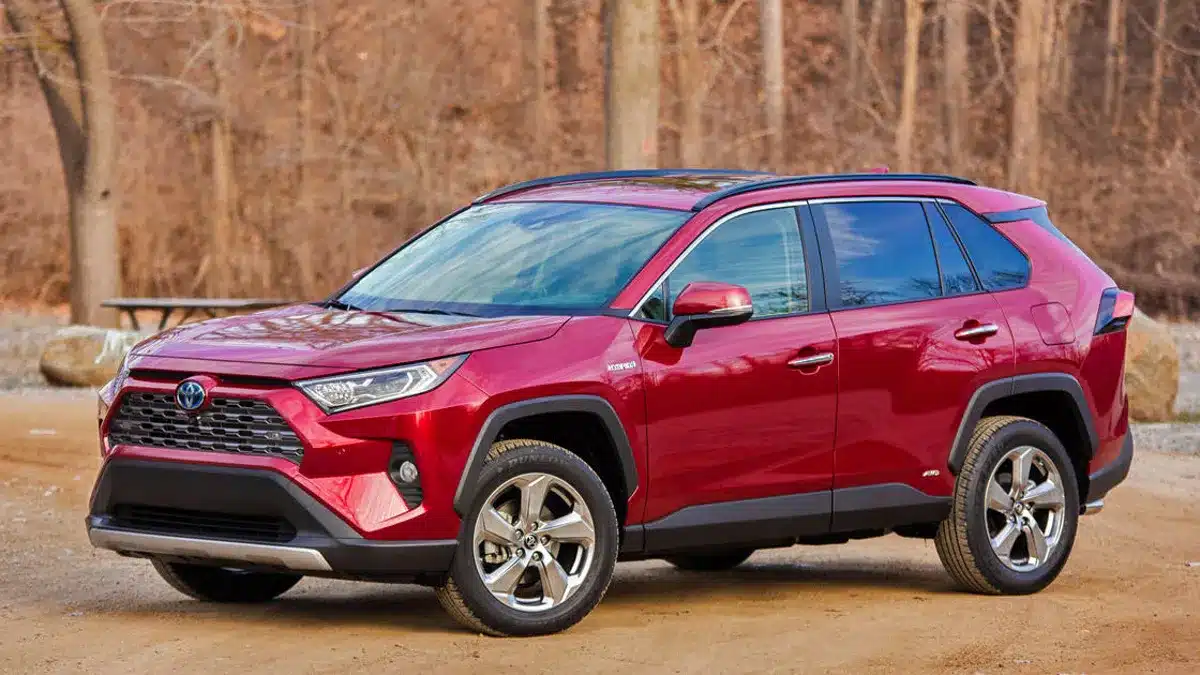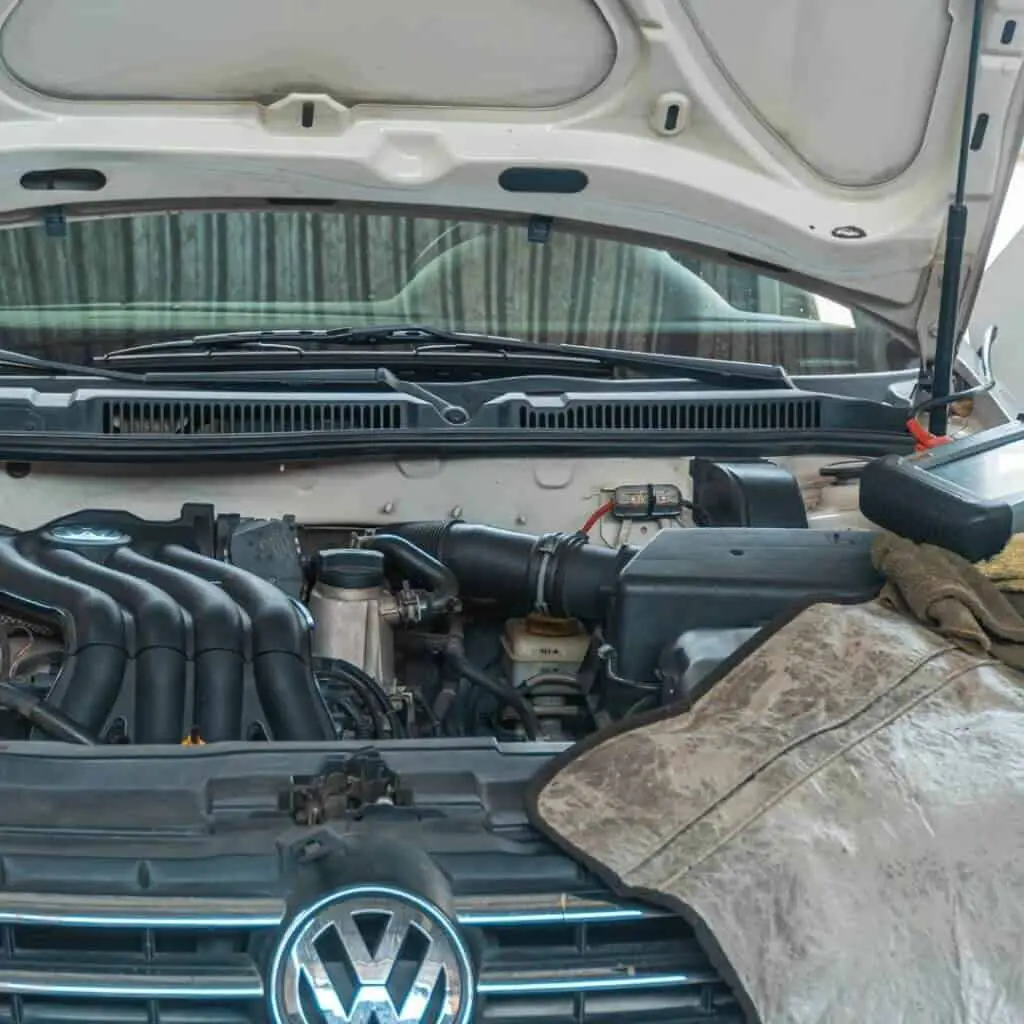Are you familiar with Toyota RAV4 problems and recalls?
The Toyota RAV4 is a compact SUV that has been in production for five generations. The car produces 203 horsepower from its 2.5-liter four-cylinder engine.
The RAV4 combines the benefits of an SUV and a compact car, including more cargo space, 4WD capabilities, excellent fuel economy, and maneuverability. It also has intelligent multi-terrain options and standard infotainment features Apple Car Play and a 12-speaker JBL system.
It also features world-class safety features, including forward collision warning and lane-keeping assistance. The automatic emergency braking, a rearview camera, and adaptive cruise control are additional features that make the vehicle attractive.
Like any other vehicle, the Toyota RAV4 has various problems that can affect its dependability and performance. The most common issues owners report include powertrain and transmission, engine, steering, fuel system, battery, and brake issues.
Common Toyota RAV4 Problems

Overall, the most serious problem with the Toyota RAV4 is the latest recall about potential fire risk caused by a short circuit of replacement battery. Other problems may include transmission issues, some minor engine problems on high-mileage cars, and brake issues.
- Potencial fire risk.
Toyota is recalling around 1.8 million of certain Rav4 models made from 2013 to 2018. The issue can be a replacement 12v battery with smaller top dimensions.
In the event that a replacement with a smaller top is utilized and the hold-down clamp is inadequately tightened, there is a potential for the battery to shift during forceful turns while driving the vehicle.
According to Toyota, this movement may result in contact between the positive battery terminal and the hold-down clamp, leading to a short circuit and an elevated serious risk of a fire.
You could check if your car is included in a recall on Toyota.com/recall or here nhtsa.gov/recalls.
- Powertrain and Transmission Issues
RAV4 owners have reported many powertrain-related issues. The problems are automatic transmission, transmission solenoid, and transmission noise issues.
The most prevalent issue with the Toyota RAV4’s powertrain is automatic transmission issues. Many owners said that their cars jerked or hesitated while attempting to accelerate. The reason is that the transmission is faulty, and the ECM unit is malfunctioning. This issue is mostly found in RAV4 models from 2001 to 2003. [1]
Many RAV4 owners have also complained about the transmission slipping gear without warning. Solenoid failure is another commonly reported transmission issue with RAV4.
Similarly, drivers have complained about the Check Engine light appearing randomly while driving, immediately followed by the vehicle intermittently stalling.
There have been complaints about an unpleasant grinding noise that occasionally occurs during acceleration or deceleration. Owners have reported that this happens immediately after shifting to reverse or switching from FWD to 4WD.
Powertrain and transmission failure can occur due to a variety of factors. This includes the needle roller bearing failure. If the needle bearings wear out, your Toyota RAV4 may make grinding noises.
Another possibility is that the transmission fluid is low or contaminated. Without the proper amount of clean transmission fluid, your transmission may overheat, causing your gears to slip or surge out of control.
A clogged transmission fluid filter is another cause of transmission failure. A clogged filter will impede its operation and eventually cause the transmission to stall.
- Engine Problems
Toyota RAV4 owners have reported a variety of engine-related issues. Excessive engine oil consumption is one of the most prevalent engine-related problems.
There is also a water pump leak issue, where several owners reported that the pump leaked fluid without warning, sometimes accompanied by loud engine noise. This water pump trouble appears in the Toyota RAV4 as early as 25,000 miles.
Furthermore, engine exhaust issues are expected. Several RAV4 owners reported a strong burning odor and exhaust fumes in the cabin. This issue is most prevalent in pre-2010 Toyota RAV4 models.
Defective piston rings are one of the possible causes [2].
If your piston rings are damaged or worn out, engine oil seeps through and enters the internal combustion chamber. This will cause the oil to burn, depositing carbon on the rings and cylinders.
Another issue is worn-out gaskets. A faulty crankshaft seal or valve cover gasket can cause your vehicle to leak oil. A defective crankshaft seal or gasket is among the most common causes of coolant leaks from your vehicle’s water pump.
Similarly, a failed oxygen sensor and a loose fuel cap could cause the problem. If your Check Engine lamp lights intermittently or has been on for a while, it is most likely due to a failed oxygen sensor [3].
A faulty catalytic converter can also be to blame for engine problems. Overheated converters will emit a foul, sulphuric odor from the exhaust.
- Steering system Issues
There have also been complaints about the vehicle’s steering. Many RAV4 owners have complained about annoying clicking noises from the steering column. This usually occurs during a low-speed turn or reverse attempt.
Others reported that the steering wheel may fail while driving, sometimes resulting in crashes [4]. The failure mileage was frequently over 50,000 miles, and the failure occurred on pre-2010 Toyota RAV4 models.
The power steering light turning on is another commonly reported steering issue. Furthermore, owners claimed that the steering wheel became extremely difficult to maneuver.
Contamination of power steering fluids, worn-out steering belts, leaking fluids, bad tie rod ends, defective column bearings, faulty steering racks, and bad ball joints are potential causes of steering-related issues [5].
- Battery Issues
Many fifth-generation RAV4 owners have complained about battery drain problems, even though their cars were only a few months old. The vehicle must be jump-started if the battery runs out of power. Batteries for cars typically last 3 to 5 years.
There must be something in the RAV4 that is continuously draining the battery, even when it is just sitting idle, based on the numerous reports of RAV4 batteries going dead indefinitely.
The RAV4’s 2019 and 2020 model years, which were early builds of the fifth-generation model, are the only ones affected by this battery drain issue.
- Fuel System problems
The fuel system operates in tandem with the engine to drive the SUV forward. However, the system in this vehicle needs improvement.
Some RAV4 users claim that the fuel tank warning light will turn on even when the car has more than 4 gallons of fuel left in the tank.
This warning light misrepresents the vehicle’s actual range. Thus the amount of fuel dispensed overall is less than anticipated. This is possible because the fuel nozzle automatically clicks off when refueling.
- Brake Issues
Brake problems have been reported to the NHTSA by many RAV4 owners. The brakes won’t stop the car if there are bumps in the road. The car jerks, the brake pedal trembles, and it feels like you’re pushing against the air [6].
When this happens, the car has neither warning lights nor sounds. Even after repairs, it is common for a car’s brakes to malfunction again after driving over a rough patch of pavement.
Other users have expressed dissatisfaction over the front brakes’ squealing or squeaking noise when braking at low speeds.
How to Fix Toyota RAV4 Problems

The best way to prevent Toyota RAV4 issues is to perform regular maintenance. This entails frequently changing the oil and filter and examining components for wear. Another way is by keeping an eye out for caution signs.
Take your car to a qualified mechanic for a checkup if you hear any odd noises, detect strange smells, or if it seems to be running less smoothly than usual. Also, pick parts compatible with your Toyota RAV4 if you install aftermarket components.
You should similarly keep track of any recalls that might apply to your Toyota RAV4 and take it in for repairs as soon as you can if one does. One should observe their driving behavior as well. How you drive could have an impact on how long your car lasts.
Read Also: Toyota Prado Problems
Conclusion
The Toyota RAV4 is a genuinely enjoyable crossover offering a distinctive fusion of luxury, effectiveness, and efficiency. It gives an unforgettable driving pleasure. It is highly functional in everyday life, and lavishly equipped with safety technologies.
However, it is susceptible to several typical issues, from minor annoyances to significant mechanical problems that affect its performance, quality, and reliability. Consider having the vehicle regularly serviced to ensure its smooth and effective operation.
You should also adhere to the manufacturer’s suggested maintenance schedule. Overall, this car gives a dependable, luxurious driving experience and adequate performance for many years with routine maintenance and proactive care.
Read Next: KIA Carens Problems




